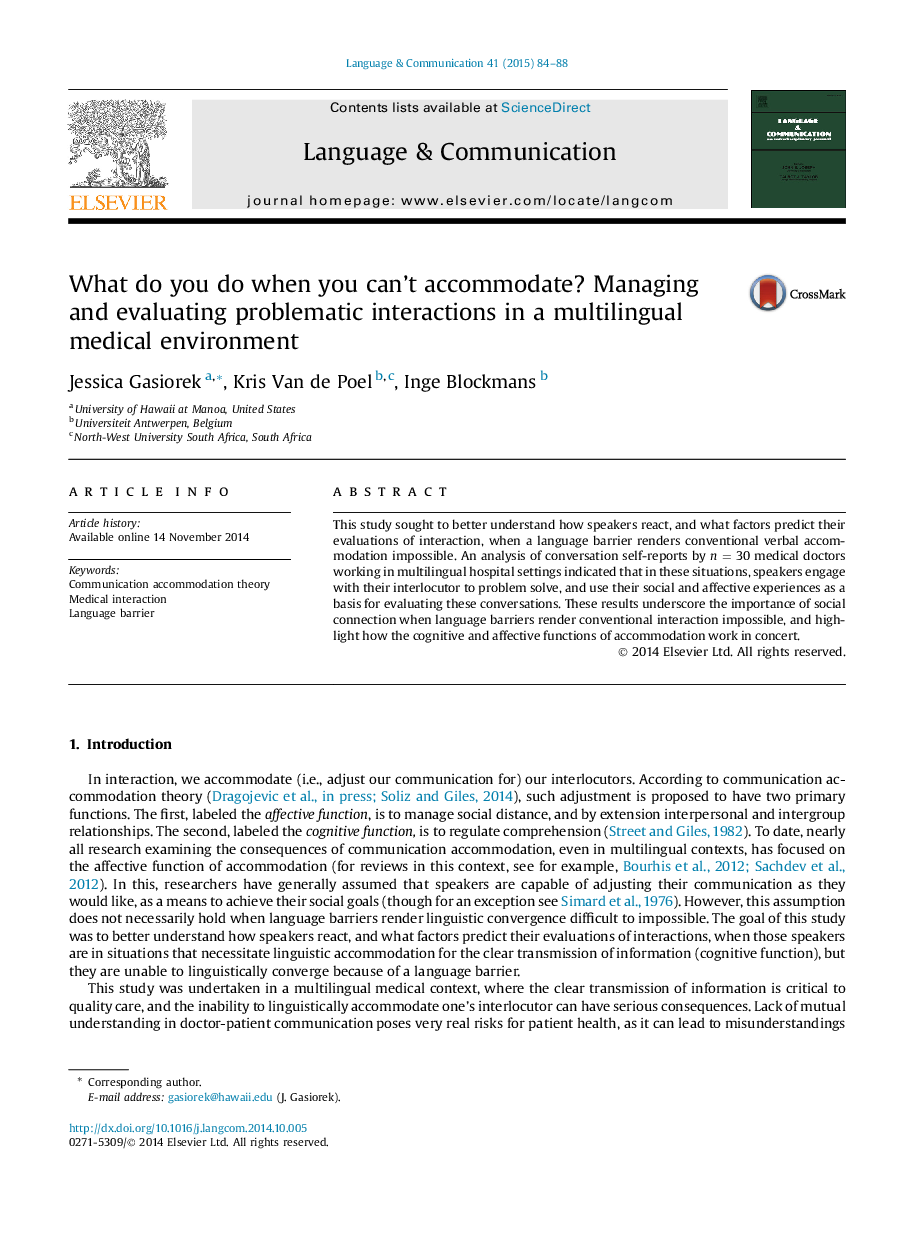| کد مقاله | کد نشریه | سال انتشار | مقاله انگلیسی | نسخه تمام متن |
|---|---|---|---|---|
| 935177 | 1474924 | 2015 | 5 صفحه PDF | دانلود رایگان |
• In multilingual medical settings, language proficiency can be a critical issue.
• Speakers often lack the language skills required to accommodate as needed.
• When this occurs, speakers seek to accommodate on other dimensions.
• These alternatives often emphasize social connection, not just comprehension.
• Social factors predict doctors' evaluations of these problematic interactions.
This study sought to better understand how speakers react, and what factors predict their evaluations of interaction, when a language barrier renders conventional verbal accommodation impossible. An analysis of conversation self-reports by n = 30 medical doctors working in multilingual hospital settings indicated that in these situations, speakers engage with their interlocutor to problem solve, and use their social and affective experiences as a basis for evaluating these conversations. These results underscore the importance of social connection when language barriers render conventional interaction impossible, and highlight how the cognitive and affective functions of accommodation work in concert.
Journal: Language & Communication - Volume 41, March 2015, Pages 84–88
